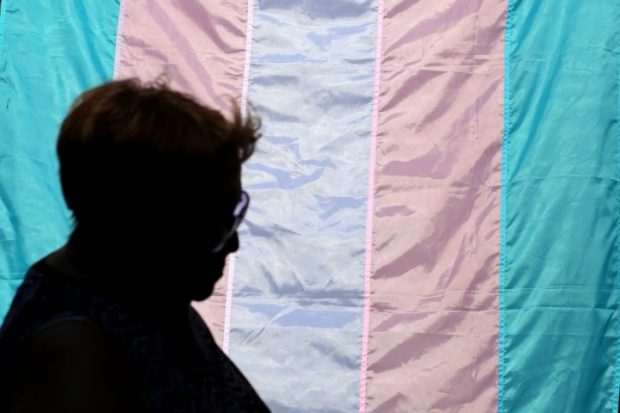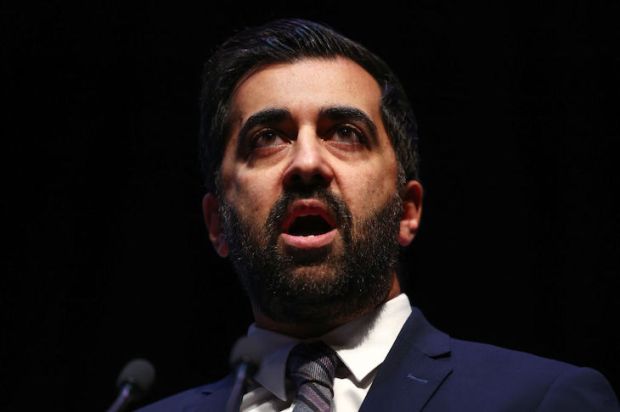A year of disrupted schooling means there are plenty of issues facing our schools right now. But delegates at last week’s National Education Union conference were more interested in another subject: developing a new – and presumably beefed-up – definition of transphobia.
‘Transphobic news stories are a continued and escalating blight on trans and nonbinary members’ lives, with severe consequences on mental health,’ said motion 22. The ‘Pride in our Union’ motion (you can read the full text here) called for a ‘definition of transphobia that goes above and beyond legal compliance and that supports and endorses trans and non-binary identities without resorting to the erasure or downgrading of ‘gender”.
Make no mistake: this should not be a priority for a teaching union. Trans people are not particularly oppressed in the UK, and certainly not in sectors such as education. Policy makers and headteachers have bent over backwards to be accommodating to transgender teachers like me and the mover of this motion.
The Equality Act may have made it illegal to treat us less favourably on the grounds of gender reassignment. But in my experience this legal protection is not often needed: most people in education want to do the right thing, which is to treat us with the same dignity and respect that they would treat anyone else.
But this was not the narrative offered at the NEU’s meeting. Instead, the motion painted a picture of intolerance in Britain today. Inevitably, as a result, the resolution passed by a landslide.
This means a new definition of transphobia is on the way. It isn’t clear who will be involved in the drawing up of this. For now at least, though, there was no invitation for women’s groups to contribute to the development of the new definition. Women make up over three quarters of NEU’s 440,000 members and it is women who have faced accusations of transphobia when they have defended the integrity of their spaces. Will they be pushed out of this important debate?
It’s also worth remembering that while supporters of making a new definition of transphobia might suggest that this is about inclusivity, in reality the result means people are likely to be further limited in what they can say. If my pieces for The Spectator have been condemned as transphobic then it is not hard to see how union members could be disciplined if they offend the trans and non-binary Network.
Thankfully, some teachers are prepared to speak out agains this emerging gender orthodoxy. Gerald Clark from Camden moved an amendment to remove the clause ‘above and beyond legal compliance’. Clark worries that these words could mean teachers find themselves in hot water for not upholding union rules despite acting within the law. ‘Another concern is that it could be used to stifle debate and cause conflict between different groups,’ he told me.
Another teacher, Steve White, from Waltham Forest, also voiced similar concerns. He described the motion as ‘dangerous and divisive’ and warned that it could lead to members being expelled from the union for wrong-think. As a responsible teacher, he worried about the impact of gender ideology on children who are being led to believe they can choose their sex if they are unhappy with the sex that was ‘assigned to them at birth’. Would he, or members like him, face union discipline for voicing those concerns?
Debate is something the trans lobby always seems keen to avoid though: Clark’s sensible amendment was voted down. And now work on the new definition is underway. Kevin Courtney, Joint General Secretary of NEU has already rolled up his sleeves. After the debate he said ‘the NEU will evaluate its processes as necessary to ensure that rules for challenging inappropriate conduct are clear and accessible.’
Maybe so, but many teachers I spoke to are worried about the implications for what this means. Will NEU members be free to speak their minds when it comes to talking about trans rights and gender? I am not a member of NEU so I can voice my concerns without fear of being hauled before a kangaroo court. But will female members of the union be able to discuss their sex-based rights, let alone defend them? It would be a brave female teacher who is willing to test the rules.
<//>
Got something to add? Join the discussion and comment below.
Get 10 issues for just $10
Subscribe to The Spectator Australia today for the next 10 magazine issues, plus full online access, for just $10.




















Comments
Don't miss out
Join the conversation with other Spectator Australia readers. Subscribe to leave a comment.
SUBSCRIBEAlready a subscriber? Log in